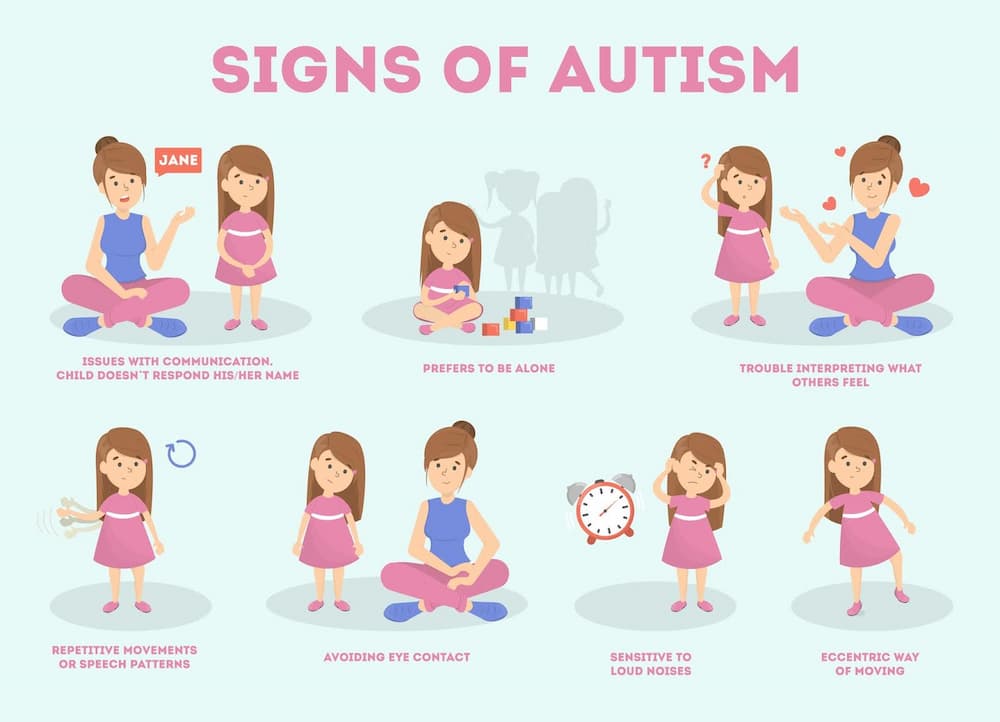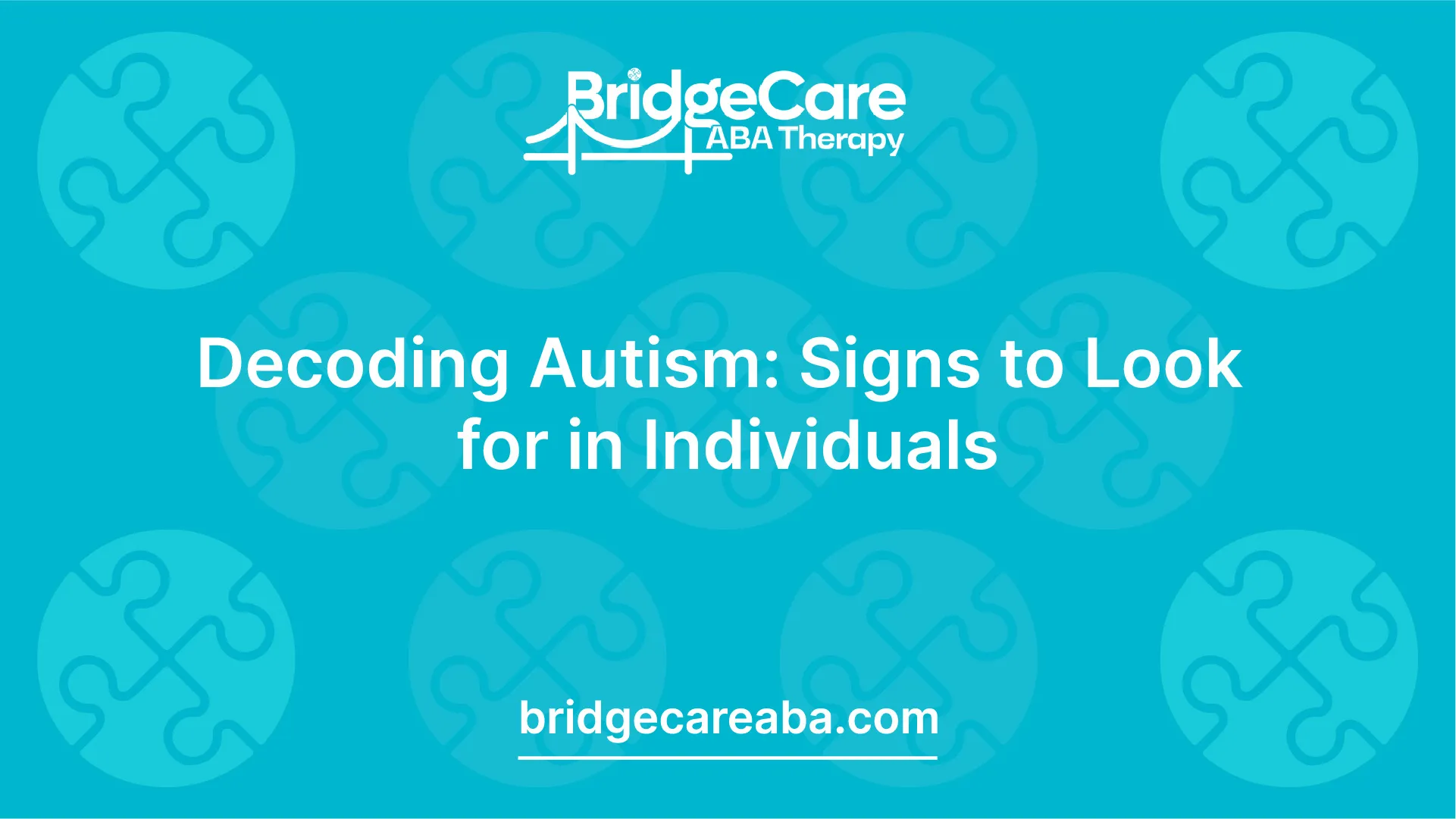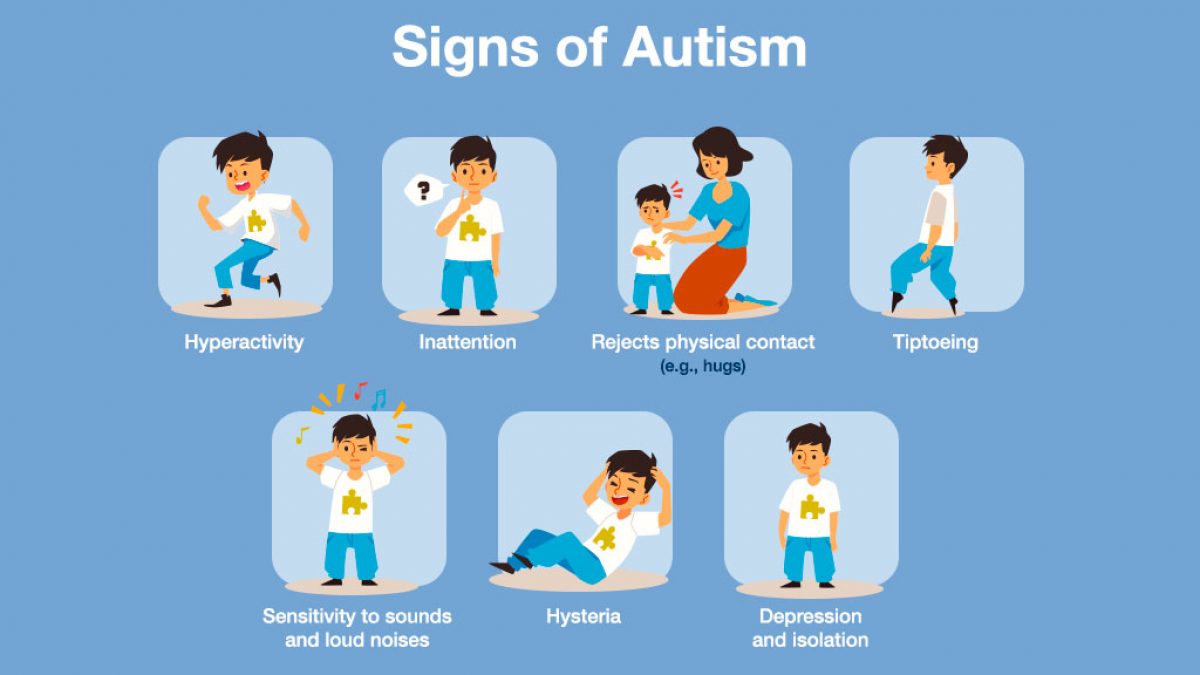Seven Powerful techniques an Autism Spectrum Therapies provider can support with social development challenges
Seven Powerful techniques an Autism Spectrum Therapies provider can support with social development challenges
Blog Article
Secret Indications and Signs And Symptoms to Identify in People With Behavioral Autism
When you run into a person with behavior autism, recognizing vital indicators and signs and symptoms is essential. You may observe challenges in social interactions and communication, in addition to a strong requirement for regimens. Additionally, sensory level of sensitivities can cause overwhelming experiences. Understanding these characteristics can enhance your support and treatments, but there's more to reveal concerning exactly how these behaviors materialize in everyday circumstances. Allow's discover what these indicators actually appear like.
Difficulties in Social Interactions
When you engage with someone on the autism range, you might notice they fight with social cues and interaction. These difficulties can make social communications feel frustrating for them. You may see them avoiding eye contact or standing as well close or as well far away throughout discussions, which can develop misconceptions. They may not notice body language or facial expressions, making it harder for them to assess exactly how others are really feeling.
Additionally, you may locate that they choose routines and familiar setups, which can limit their desire to participate in brand-new social situations. They may speak concerning their passions in great detail without observing if you're interested when they do engage. This can lead to prejudiced discussions that leave you really feeling separated. Comprehending these difficulties can aid you come close to interactions with empathy and patience, cultivating a more comfortable atmosphere for both of you.
Problem With Verbal and Non-Verbal Communication

Recognizing these indications is vital, as it helps you much better support and involve with individuals on the autism range. By recognizing their interaction difficulties, you can cultivate extra meaningful links and offer a more supportive environment.
Recurring Behaviors and Routines
Interaction obstacles commonly come with other indicators of autism, such as repeated behaviors and a strong choice for routines. You might observe that individuals with autism typically take part in details, repetitive actions, like hand-flapping, shaking, or duplicating phrases. These behaviors can offer convenience and a sense of control in a commonly overwhelming globe.
Regimens are similarly essential; numerous people prosper when they follow an organized timetable. You may discover that adjustments to these regimens can lead to considerable distress. For instance, if they have an everyday routine of eating morning meal at a particular time or complying with a specific route to college, any kind of disruption can create anxiety.
Identifying these patterns helps you understand their actions and supply assistance. By suiting their demand for regular and permitting recurring actions, you can develop a much more comfy environment that alleviates their difficulties.
Sensory Sensitivities

Usual Sensory Triggers
Sensory sensitivities can considerably affect life for people with autism, as particular stimuli frequently cause frustrating reactions. Usual sensory triggers include loud sounds, bright lights, and strong smells. You might see that abrupt audios, like sirens or alarms, trigger anxiousness or distress. Likewise, fluorescent illumination in shops can really feel severe and uneasy. Structures can additionally play a significant duty; rough materials or particular food textures may be excruciating for you. Furthermore, crowded areas can bewilder your senses, making it tough to unwind or concentrate. Recognizing these triggers can assist you handle your environment better. By knowing what influences you, you can take steps to decrease discomfort and enhance your day-to-day experiences.
Behavior Responses Discussed
Recognizing your behavior feedbacks to sensory sensitivities is vital, as they usually reveal exactly how you connect with the globe. You might see that specific sounds, lights, or textures overwhelm you, bring about anxiousness or discomfort. When encountered with these stimuli, you may take out, cover your ears, and even react strongly. These actions aren't simply traits; they're your means of handling overstimulation. You might also locate yourself seeking certain sensory experiences, like deep pressure or peaceful settings, to aid ground on your own. Recognizing these patterns aids you recognize your needs better and can assist exactly how you connect them to others. By acknowledging your sensory level of sensitivities, you can function towards developing an atmosphere that feels a lot more manageable and comfortable for you.
Coping Approaches Review
Acknowledging your sensory level of sensitivities is simply the initial step; now it's time to check out here coping methods that can assist you handle those experiences effectively. Beginning by producing a sensory toolkit customized to your needs. Developing an organized routine can likewise offer predictability, lowering stress and anxiety around sensory overload.
Limited Interests and Emphasis
While several people create a vast array of passions, those with autism often show limited passions and an intense concentrate on specific subjects. You could see that someone with autism can invest hours delving right into their favored topic, whether it's a specific sort of train, a particular motion picture, or a scientific concept. This extreme focus isn't simply a leisure activity; it can end up being a main part of their identity and social communications.
You might discover that conversations revolve around these passions, and they may battle to engage in broader topics. By comprehending and recognizing these restricted interests, you can promote a helpful setting where they feel valued and understood, allowing for even more meaningful links and communications.
Emotional Regulation Troubles
People with autism often face difficulties in psychological guideline, which can be affected by their intense emphasis on details passions. You may notice that when a person is deeply taken part in a preferred task, they can experience solid emotions, whether enjoyment or aggravation. When points don't go as prepared., this strength sometimes makes it difficult for them to shift equipments or manage their feelings - Autism Therapist.

Variability in Developmental Turning Points
When it involves developmental milestones, you'll notice that individuals with autism commonly reveal a large range of irregularity. Some may strike milestones promptly, while others may delay behind or development at a various rate. You may see a youngster succeed in language abilities however battle with social communications. This variance can be complicated, as traditional criteria don't always use.
It's important to identify that click here each individual's journey is unique. Observing these patterns can assist you comprehend their toughness and needs better.
Often Asked Inquiries
Just How Is Autism Identified in Children and Grownups?
To identify autism in kids and adults, professionals review behavior, communication abilities, and social communications. They commonly use standardized tests, interviews, and monitorings to identify if a private meets the requirements for autism spectrum disorder.
Exist Various Kinds of Autism Spectrum Disorders?
Yes, there are different sorts of autism range disorders, including Asperger's syndrome and prevalent developmental disorder-not or else defined. Each type varies in extent and features, so understanding these differences can aid you better assistance people with autism.
What Treatments Work for Individuals With Autism?
When taking into consideration effective therapies for people with autism, you'll discover options like Applied Behavior Evaluation, speech therapy, and work treatment. Each strategy can aid enhance communication, social skills, and day-to-day working customized to private demands.
Can People With Autism Lead Independent Lives?
Yes, individuals with autism can lead independent lives. With the right support, abilities training, and resources, you can aid them establish self-sufficiency, manage everyday jobs, and flourish in various atmospheres, fostering their self-reliance.
Exactly How Can Family Members Assistance Loved Ones With Autism?
You can support your loved ones with autism here by developing a structured atmosphere, encouraging their passions, practicing patience, fostering interaction, and advertising social abilities. Commemorate their accomplishments, despite exactly how small, and build an encouraging area.
Although many people on the autism range can make use of and comprehend language, they often encounter significant challenges with both verbal and non-verbal communication. Identifying these signs is essential, as it helps you much better assistance and involve with individuals on the autism spectrum. You may discover that individuals with autism commonly engage in particular, repetitive actions, like hand-flapping, shaking, or repeating phrases.Sensory sensitivities can substantially influence daily life for people with autism, as specific stimulations often trigger frustrating reactions.When it comes to developmental milestones, you'll observe that individuals with autism commonly show a large range of irregularity.
Report this page